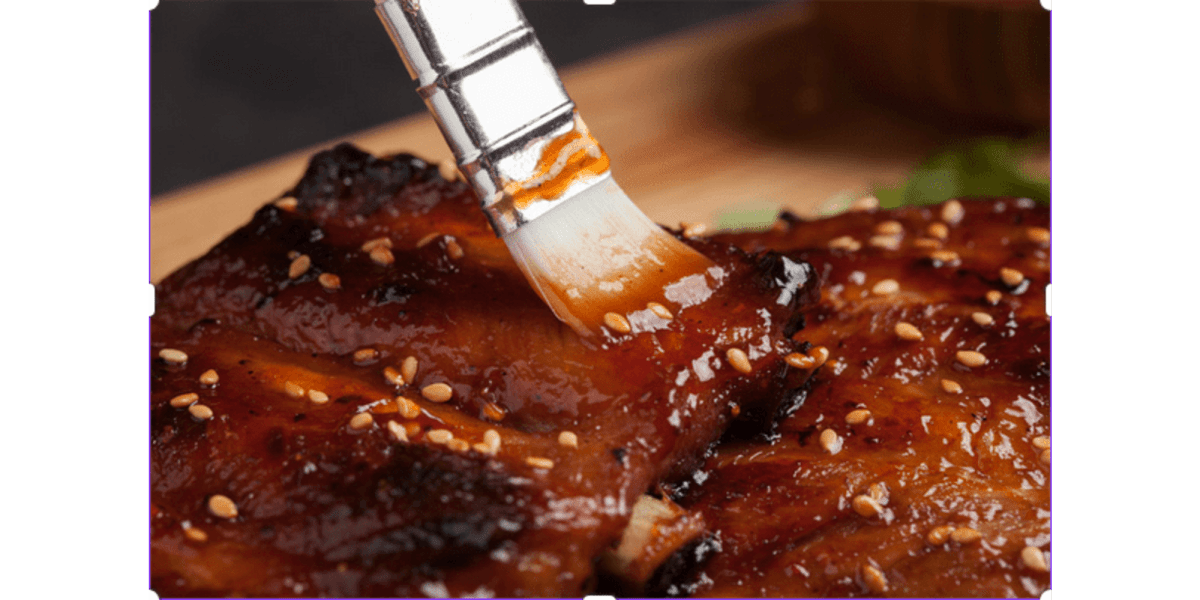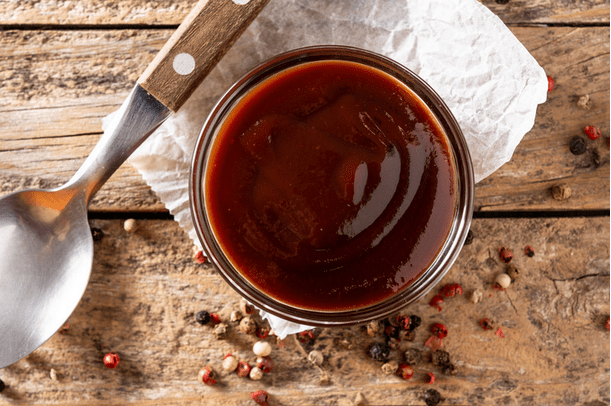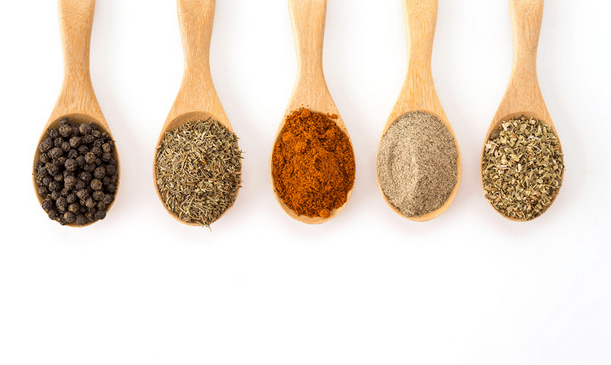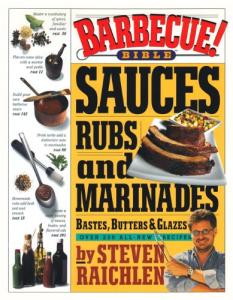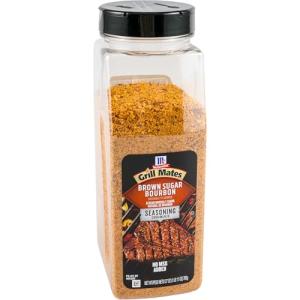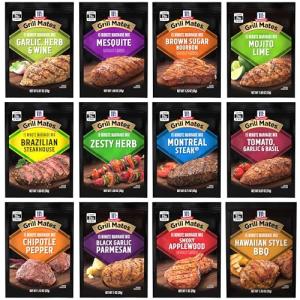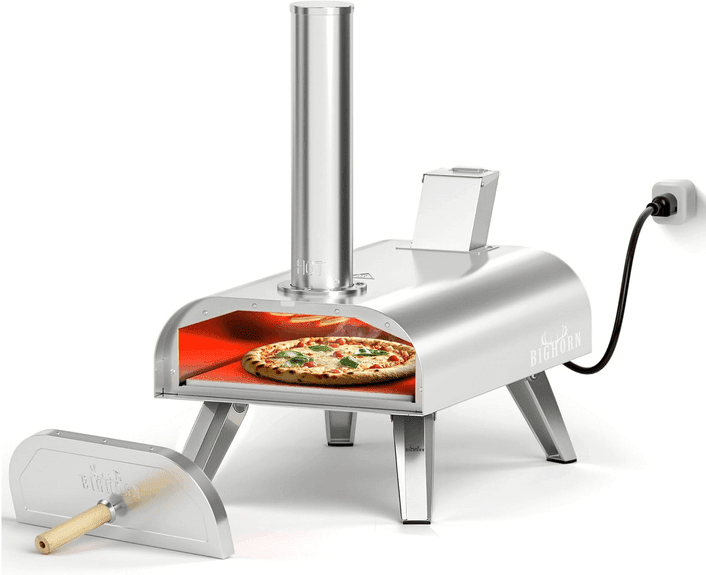Are you ready to take your grill game to the next level? Look no further than these mouthwatering BBQ sauce recipes that are sure to ignite your taste buds. Whether you're a seasoned pitmaster or a BBQ enthusiast just starting out, these flavorful concoctions will take your grilling skills to new heights.
From tangy and sweet to smoky and spicy, these homemade BBQ sauces have got it all. Forget about store-bought bottles filled with artificial flavors and preservatives. With these recipes, you'll be able to create your very own signature BBQ sauce that will have your friends and family begging for the recipe.
Infuse your grilled meats with the perfect balance of flavors, whether it's a classic Kansas City-style sauce, a tangy Carolina mustard sauce, or a fiery Texas-style blend. Customize the seasonings, adjust the sweetness, and experiment with different ingredients to find the perfect BBQ sauce for your taste.
So fire up your grill, grab your spatula, and get ready to impress with these mouthwatering BBQ sauce recipes. Your summer cookouts will never be the same again. Get ready to taste the difference homemade sauce can make!
The history of BBQ sauce
The origins of BBQ sauce can be traced back to the early days of barbecue itself, which has roots in various cooking traditions around the world. The word "barbecue" itself is derived from the Taino word "barbacoa," which referred to a wooden framework used for cooking meat over an open flame. As European settlers arrived in the Americas, they encountered indigenous cooking techniques and ingredients that would eventually blend with their own culinary traditions, leading to the creation of various BBQ styles and sauces.
Throughout the 18th and 19th centuries, BBQ sauce began to evolve as different regions in the United States developed their unique takes on flavor profiles. The Southern states, particularly, became known for their rich, tangy sauces that often included vinegar, mustard, and molasses. This regional diversity reflects the cultural influences of the people living in those areas, including African, Native American, and European traditions, all contributing to the delicious and varied BBQ sauces we know today.
As BBQ culture spread across the nation, so did the popularity of BBQ sauce. By the mid-20th century, BBQ sauce became a staple in American households, with recipes passed down through generations. The rise of commercial BBQ sauces in the 1970s further popularized the condiment, leading to a myriad of bottled options available at grocery stores. However, many BBQ enthusiasts still cherish the art of making their own sauces, believing that homemade versions are far superior in taste and quality.
Different types of BBQ sauce
BBQ sauce varies significantly across different regions, each offering a unique flavor profile that reflects local ingredients and culinary traditions. One of the most recognizable styles is the Kansas City-style BBQ sauce, known for its thick, sweet, and tangy base. This sauce typically includes a combination of tomato paste, brown sugar, and vinegar, creating a rich and sticky glaze that pairs beautifully with smoked meats. It's a versatile sauce that works well on ribs, brisket, and even chicken.
On the other hand, Carolina BBQ sauce is famous for its mustard-based version, particularly in the eastern part of the state. This sauce is tangy and slightly spicy, often made with yellow mustard, vinegar, and spices. It complements pulled pork perfectly, adding a zesty kick that cuts through the meat's richness. In contrast, the western part of North Carolina features a vinegar-based sauce that is thinner and more focused on tanginess, often containing red pepper flakes for extra heat.
Texas-style BBQ sauce is another standout, characterized by its bold flavors and smoky undertones. This sauce often includes a combination of tomatoes, chili powder, and Worcestershire sauce, resulting in a spicy and savory profile. The emphasis on spice makes it a great match for beef brisket and sausage, staples of Texas BBQ. Each type of BBQ sauce not only elevates the flavor of grilled meats but also tells a story of the cultural influences that shaped them.
Essential ingredients for homemade BBQ sauce
Creating your own BBQ sauce at home allows for endless customization, but there are several essential ingredients that form the backbone of most recipes. The primary base for many BBQ sauces is tomatoes, which can come in various forms such as ketchup, tomato paste, or crushed tomatoes. This ingredient provides the rich, tangy foundation that complements the other flavors. For those looking to create a vinegar-based sauce, apple cider vinegar or white vinegar can serve as the main ingredient, adding acidity and brightness.
Sweeteners play a crucial role in balancing the flavors of your sauce. Brown sugar is a popular choice, as it adds not only sweetness but also depth with its molasses content. Honey and maple syrup are excellent alternatives for those seeking a more natural sweetener. Additionally, molasses itself can be used to create a darker, richer sauce, enhancing its complexity. The sweetness of these ingredients helps to caramelize on the grill, creating that coveted sticky glaze.
Lastly, spices and seasonings are vital for building flavor in your homemade BBQ sauce. Common spices include smoked paprika, garlic powder, onion powder, and black pepper. Mustard, Worcestershire sauce, and hot sauce can also be added for an additional layer of flavor and heat. By experimenting with these essential ingredients, you can craft a BBQ sauce that perfectly suits your palate, whether you prefer it sweet, spicy, or tangy.
Classic BBQ sauce recipes
One classic recipe that epitomizes the essence of BBQ sauce is the Kansas City-style BBQ sauce. To make this sauce, start with 1 cup of ketchup as your base, then add 1/2 cup of brown sugar, 1/4 cup of apple cider vinegar, and 1 tablespoon of Worcestershire sauce. For flavor, incorporate 1 teaspoon of smoked paprika, 1 teaspoon of garlic powder, and a pinch of black pepper. Combine all the ingredients in a saucepan and simmer over low heat for about 30 minutes, allowing the flavors to meld together. This sauce is perfect for glazing ribs or as a dipping sauce for grilled chicken.
Another classic is the Carolina mustard BBQ sauce, which is both tangy and slightly spicy. Combine 1 cup of yellow mustard with 1/3 cup of apple cider vinegar, 1/4 cup of brown sugar, and 1 tablespoon of Worcestershire sauce in a bowl. For added flavor, mix in 1 teaspoon of black pepper, 1 teaspoon of cayenne pepper, and 1 teaspoon of garlic powder. This sauce is ideal for pulled pork sandwiches, as it adds a delightful zing that enhances the flavor of the meat.
For a smoky and flavorful Texas-style BBQ sauce, start with 1 cup of tomato sauce, then stir in 1/4 cup of apple cider vinegar, 1/4 cup of brown sugar, and 2 tablespoons of chili powder. Add 1 tablespoon of Worcestershire sauce and 1 teaspoon of smoked paprika for depth. Simmer the mixture for about 20 minutes, allowing the spices to infuse. This sauce pairs wonderfully with beef brisket and can also be used as a marinade for grilled sausages, providing a hearty and robust flavor.
Unique twists on traditional BBQ sauce
BBQ sauce doesn't have to be confined to traditional recipes; creativity can lead to exciting and delicious twists on the classics. One unique variation is the addition of fruits to the sauce, which can introduce a sweet and tangy element. For instance, incorporating pureed peaches or apricots into a base BBQ sauce can create a delightful flavor that pairs beautifully with grilled chicken or pork. Simply blend 1 cup of fresh or canned peaches with your favorite BBQ sauce recipe, adjusting sweetness and acidity as needed.
Another innovative twist involves using beer as an ingredient, bringing in rich and complex flavors. A stout beer can add depth to a BBQ sauce, complementing the sweetness of the tomatoes or sugar. To create a beer-infused BBQ sauce, mix 1 cup of your favorite dark beer with 1 cup of ketchup, 1/4 cup of brown sugar, and 1/4 cup of apple cider vinegar. Add spices like garlic powder, onion powder, and cayenne for an extra kick. This sauce is perfect for beef ribs or grilled sausages, enhancing the smoky flavors of the grill.
For those who enjoy a hint of sweetness with a spicy kick, a chipotle-infused BBQ sauce is a must-try. Start with your base BBQ sauce and add 2-3 chopped chipotle peppers in adobo sauce, along with a tablespoon of adobo sauce. This addition will not only bring heat but also a smoky flavor that complements the sweetness of the sauce. This chipotle BBQ sauce works wonderfully with grilled chicken, ribs, or even as a marinade for steaks, giving your grilling experience an exciting flavor boost.
Spicy BBQ sauce recipes
For those who crave heat, spicy BBQ sauces can elevate your grilling experience to new heights. One straightforward method is to take a classic BBQ sauce and ramp up the heat with ingredients like jalapeños or habaneros. Start with a base of 1 cup of ketchup, then add 1/4 cup of apple cider vinegar, 1/4 cup of brown sugar, and 1 finely chopped jalapeño. Simmer the mixture for about 30 minutes, allowing the flavors to develop. This sauce is perfect for slathering on grilled chicken or ribs, offering a nice kick without overwhelming the palate.
Another spicy variation is the Sriracha BBQ sauce, which combines the beloved Thai chili sauce with traditional BBQ elements. To make this sauce, mix 1 cup of ketchup with 1/4 cup of Sriracha, 1/4 cup of apple cider vinegar, and 2 tablespoons of brown sugar. Add garlic powder, onion powder, and smoked paprika to taste. This sauce has a spicy kick and a sweet and tangy profile, making it an excellent choice for burgers, grilled veggies, or as a dipping sauce for fries.
For a fiery twist, consider making a ghost pepper BBQ sauce. Start with a typical BBQ sauce base, such as 1 cup of ketchup and 1/4 cup of apple cider vinegar, then carefully add ghost pepper powder or a small amount of ghost pepper sauce to taste. Remember that ghost peppers are extremely hot, so use sparingly and adjust according to your heat tolerance. This sauce is ideal for those who truly enjoy the heat and want to impress their friends at the next barbecue.
Sweet and tangy BBQ sauce recipes
Sweet and tangy BBQ sauces provide a delightful balance of flavors that can enhance a variety of grilled meats. One popular recipe is the apple cider vinegar-based sauce, which combines 1 cup of apple cider vinegar with 3/4 cup of brown sugar, 1/4 cup of ketchup, and a tablespoon of mustard. For added flavor, mix in garlic powder, onion powder, and a pinch of cayenne pepper. This sauce works particularly well with pork, as the acidity cuts through the meat's richness, creating a harmonious balance.
The pineapple BBQ sauce is another sweet and tangy option, which introduces a tropical twist. Combine 1 cup of crushed pineapple (with juice) with 1/2 cup of ketchup, 1/4 cup of brown sugar, and 1/4 cup of apple cider vinegar. Add soy sauce, minced garlic, and ginger for a flavor boost. This sauce is fantastic for grilled chicken and pork, imparting a refreshing sweetness that brightens up any cookout.
For a classic sweet and tangy BBQ sauce, you can create a simple honey BBQ sauce. Mix 1 cup of ketchup with 1/2 cup of honey, 1/4 cup of apple cider vinegar, and a tablespoon of Worcestershire sauce. For seasoning, add garlic powder, onion powder, and black pepper. This sauce is versatile and pairs well with a range of meats, including ribs, burgers, and chicken wings, delivering a delightful combination of sweet and savory that everyone will love.
Tips for grilling with BBQ sauce
Grilling with BBQ sauce requires a few key techniques to ensure that your meats are flavorful and not burnt. First and foremost, it's essential to apply the sauce at the right time during the cooking process. If you apply BBQ sauce too early, the sugars in the sauce can burn, resulting in a bitter taste. Instead, wait until the last 10-15 minutes of cooking to brush on the sauce. This will allow the sauce to caramelize without charring.
Another tip is to create a two-zone fire on your grill. This technique involves having one side of the grill set to high heat and the other side set to low heat. Start cooking your meat over the high heat side to achieve a good sear, then move it to the cooler side to finish cooking. This method allows you to control the cooking process better and helps prevent the sauce from burning while still allowing it to develop rich flavors.
Lastly, don't forget to experiment with marinades before grilling. Marinating your meat in a mixture that includes some of your BBQ sauce or its key ingredients can enhance the flavor penetration into the meat. Allowing the meat to marinate for a few hours or even overnight will result in a more flavorful final product. When ready to grill, you can use the same sauce to baste while cooking, creating a cohesive flavor profile that will impress your guests.
Conclusion: Elevate your grilling with homemade BBQ sauce
Incorporating homemade BBQ sauce into your grilling routine can elevate your culinary experience. By customizing flavors and ingredients, you can cater to your personal taste preferences while avoiding the artificial additives often found in store-bought options. The recipes and variations discussed in this article provide a foundation for crafting delicious sauces that complement any grilled dish.
Whether you prefer sweet, tangy, spicy, or a unique twist on a classic, there is a BBQ sauce recipe that will ignite your grill game. You can develop your signature sauce by experimenting with different ingredients and techniques to leave a lasting impression on friends and family during cookouts. The joy of grilling is not just in the cooking but also in sharing these flavorful experiences with loved ones.
So, fire up your grill, gather your ingredients, and prepare to create mouthwatering BBQ sauces that will make every cookout memorable. With these flavorful recipes at your disposal, your summer grilling adventures will become legendary, as you impress everyone with your newfound BBQ prowess.
DISCLAIMER
This document is provided for general information purposes only and should not be relied upon as providing legal advice, technical, or specific operational guidance to the reader, whether as to the practices described in the document or the applicable legal requirements and regulations. backyardgrillingpros.com expressly disclaims any responsibility for liability arising from or related to the use or misuse of any information in this document.
